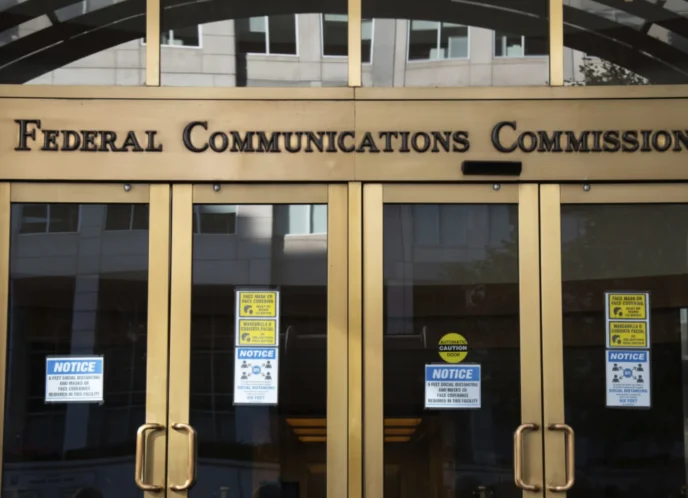By Josh Levy / Reposted from Huffington Post
Another year, another 12 months in which the mobile carriers did their best to screw us.
AT&T, Sprint, T-Mobile and Verizon do so many bad, annoying and anti-consumer things that it's almost impossible to document it all. So below is a catalog of simply the most egregious acts the carriers perpetrated this year.
Each company has its own special way of screwing its customers. But some trends emerged. All of the carriers tried to charge us more for text messaging and data. They were all keen to grab our sensitive data to sell to marketers or — in some cases — give to the government. And Verizon twice showed that it's willing to block apps from reaching our phones — even when those apps come straight from the Googleplex.
Above all, AT&T showed that squeezing every last penny out of us isn't enough to satisfy its bottomless need for profits, so it decided it needed to buy T-Mobile to kill wireless competition for good. Thankfully, the FCC and the Justice Department — along with millions of Americans — saw the light and the deal is as good as dead.
Read on for the full list.
10. The Carriers Hold Customer Data for Years
Surprise, surprise: The cellphone carriers are retaining all kinds of data about you — including your calling history, Web-browsing history and text messages — for much longer than you would have thought.
In fact, did you realize they were collecting this info at all?
AT&T holds on to your call records for five to seven years. And Verizon retains the content of text messages for three to five days and logs your Web-browsing history for a year.
At least Verizon is being (somewhat) transparent about what it's doing: It recently told subscribers (by mail, but still) about its data-collection scheme and offered them the chance to opt out.
9. Apple Files Patent to Block iPhone Cameras
Apple is technically not a carrier, but it's so dominant in the mobile space, I'm making an exception for it.
Last summer, reports surfaced that Apple had filed a patent for software that would sense when iPhone users were trying to use their phones' cameras at live events — and disable them.
Imagine if the governments of Egypt or Libya had this technology during the Arab Spring, or if law enforcement in the U.S. could use it to block documentation of police abuse during the Occupy protests. It's pretty easy to see why this patent is a bad thing. Free Press delivered the signatures of more than 25,000 activists who urged Apple to pull the plug on the idea.
8. AT&T Raises Texting Rates
For the second time in a year, AT&T eliminated lower-cost text-messaging pricing plans, forcing users to pay either $20 for unlimited texts or 20 cents per text message.
Tech blogs were quick to note that even though text messaging costs the carriers almost nothing, they still see fit to hike up rates to squeeze more out of their customers.
In addition, Gizmodo crunched the numbers and reported that AT&T's new plan overcharges users by 10,000,000 (yes, that's 10 million) percent.
Consider this: A streaming movie on Netflix is typically about 3.5 GB in size. That means that if we paid the same rates for broadband data as we pay for texting data, it would cost us about $5 million to stream Ishtar!
7. Unlimited Data Plans Are Dead. Long Live Unlimited Data!
The trend in 2011 was to end "all you can eat" data plans to which many early iPhone and Android users had become accustomed (and addicted). By now, AT&T and Verizon both charge users who exceed their plans' data caps, and T-Mobile slows down users' download speeds. Sprint allows unlimited data use on smartphones — but if you're using your phone as a mobile hotspot or connecting directly with a tablet or laptop, Sprint will cap your data use and charge you too. There is no national carrier that isn't trying to cut consumers off or overcharge them, whether the network is congested or not.
Carriers are quick to point to the small number of users who hit this cap, seemingly forgetting that today's bandwidth hog is tomorrow's average user. As we consume more and more content on mobile networks, we're going to run up against 2GB data caps sooner rather than later. And then we'll all have to face outrageous overage charges.
Worst of all, these caps and overcharges may have a particularly severe impact on historically disadvantaged groups. People of color are disproportionately dependent on the mobile Web. So when a carrier decides to limit data use, many people could find their only connection to the Internet — for work, for family, for play — severed. And they will face truly shocking bills for exceeding data limits.
6. MetroPCS Fires Shot at Net Neutrality
A new pricing scheme from MetroPCS — the fifth-largest mobile phone carrier and a popular carrier with low-income households — was the latest round in the phone industry's war against Net Neutrality.
Under its new plan, wireless customers are charged extra if they want meaningful access to Netflix and other applications, or websites that use "advanced HTML." MetroPCS clearly isn't worried about network congestion, though, because it allows all of its users unlimited access to YouTube. Instead, the company is actively trying to create a new walled garden on the Internet, a new digital divide where some have access to the entire open Internet and others can reach only the content and applications of MetroPCS' choosing.
The FCC passed weak Net Neutrality rules at the end of 2010 that barely protect mobile users. And yet MetroPCS' plan manages to break those rules anyway.
The next step for MetroPCS? Joining Verizon in suing the FCC to get rid of any rules that protect mobile users — including the rules it broke with its new plans.
5. Verizon Sues to Kill Net Neutrality
The FCC passed its Open Internet rules in December 2010. They contain some protections for online speech on wired Internet connections but barely protect mobile Internet users. Thanks to paperwork and bureaucracy, those rules weren't actually "published" — that is, made official — until September 2011. And the minute that happened, Verizon announced it was suing to roll them back.
The move was expected, if a tad ironic, given that a year before Verizon and Google had released a policy proposal that was awfully similar to the rules the FCC eventually passed. Nevertheless, Verizon — along with MetroPCS, which joined the suit — has apparently decided that any rules protecting the public are bad rules, even if they were watered down by Verizon itself.
4. Carrier IQ and Cellphone Spying
Last month independent researcher Trevor Eckhart posted a video that showed how a hidden application called Carrier IQ is tracking what millions of people write, view and search for on their mobile phones. The public was outraged.
It turns out that Carrier IQ, the eponymous company behind the application, has worked with AT&T, Sprint and T-Mobile to install its software on more than 140 million phones without the users' knowledge. It's still unclear exactly what the carriers are doing with all this data. Despite numerous interviews — and letters from Sen. Al Franken and Rep. Ed Markey — the shell-shocked company is finding it hard to provide answers and the carriers are mostly mum.
To make matters worse, a journalist who filed a Freedom of Information Act request discovered that the FBI is likely grabbing data from Carrier IQ or the carriers, but it won't say what kind of data or why. In any event, cellphone users have a right to know what data is being collected, and how Carrier IQ, the carriers and the government are working together to spy on our phones.
3. Verizon Blocks Tethering App, Breaks Law
In July, AT&T, T-Mobile and Verizon– with Google's help — were caught restricting a wireless tethering app from Google's Android Market.
All of these carriers harmed innovation by blocking this app, which turns smartphones into Wi-Fi hotspots. But in Verizon's case, its actions were actually illegal. That's because it's the only carrier bound by meaningful openness conditions that are part of its particular spectrum licenses.
Asking Google to remove wireless tethering apps from the Android Market stops them from being used on all of Verizon's networks, including 4G. This is a direct violation of the open access rules on Verizon's spectrum license. In other words, it was illegal.
Free Press urged the FCC to investigate Verizon's actions. It didn't. And a few months later Verizon was at it again.
2. Verizon Blocks Google Wallet
Just months after it got busted blocking applications in the Android Market, Verizon Wireless confirmed it is restricting consumers' ability to download and use Google Wallet — the search giant's new mobile payment app — on the new flagship Galaxy Nexus phone.
By so casually abusing its gatekeeper position to block applications that compete with its own offerings, Verizon's move sent a message to all entrepreneurs and developers: If you come up with an interesting, disruptive new application, Verizon just may block it and promote its own version instead.
1. AT&T's Failed Merger with T-Mobile
The biggest mobile news of the year was arguably AT&T's doomed quest to merge with T-Mobile. The moment the giant carrier announced its intentions, the public erupted. These deals usually go very badly for everyone except the heads of the merging companies and result in higher prices, less competition and less choice.
The merger immediately raised antitrust concerns. It would have merged the second- and fourth-largest U.S. carriers, and it would have created a duopoly, giving AT&T and Verizon control over nearly 80 percent of the wireless market. Last summer the Justice Department cited those antitrust concerns when it announced its suit to stop the deal. Meanwhile, the FCC ultimately decided the merger wasn't in the public interest, and AT&T pulled its application for approval from the agency.
The Justice Department has agreed to put its case on hold until mid-January, giving AT&T time to formally end its charade and move on from this dead deal.
I've just outlined 10 nefarious, ugly things the carriers did to us in the last 12 months.
But just this week, we saw two important wins: A bill that would have allowed marketers to robocall our cellphones died on the vine, thanks in part to thousands of activists who mobilized against it, and two executives from Carrier IQ were called to Washington to explain themselves to the FCC and FTC.



